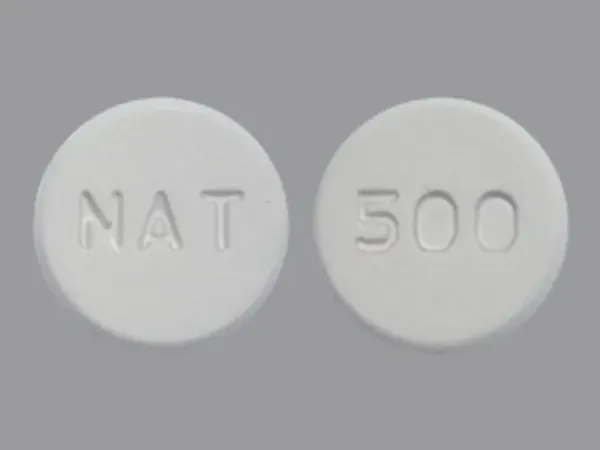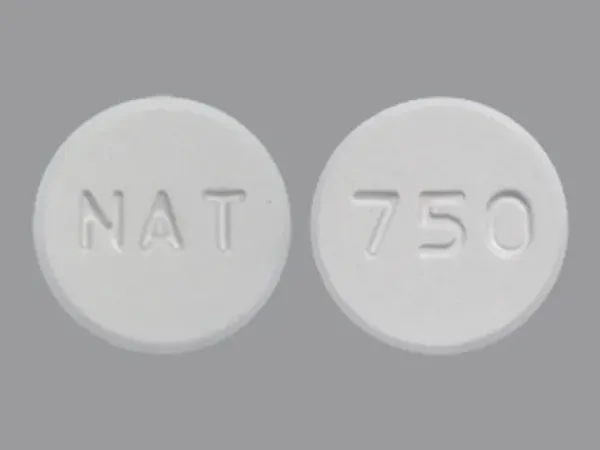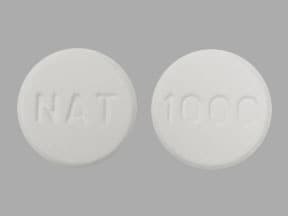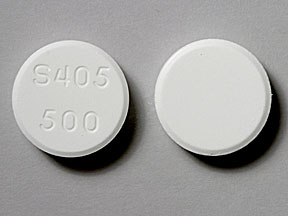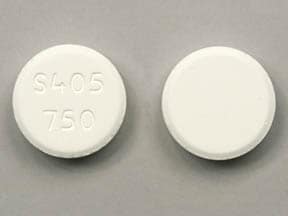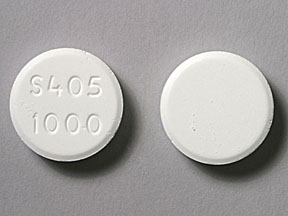Dosage Forms
Excipient information presented when available (limited, particularly for generics); consult specific product labeling.
Packet, Oral:
Fosrenol: 750 mg (10 ea, 90 ea); 1000 mg (10 ea, 90 ea)
Tablet Chewable, Oral:
Fosrenol: 500 mg, 750 mg, 1000 mg
Generic: 500 mg, 750 mg, 1000 mg
Pharmacology
Mechanism of Action
Disassociates in the upper gastrointestinal tract to lanthanum ions (La3+) which bind to dietary phosphate resulting in insoluble lanthanum phosphate complexes and a net decrease in serum phosphate and calcium levels.
Pharmacokinetics/Pharmacodynamics
Absorption
<0.002%
Metabolism
Not metabolized
Excretion
Feces primarily; urine <2%
Half-Life Elimination
Plasma: 53 hours; Bone: 2-3.6 years
Protein Binding
>99%
Use: Labeled Indications
Reduction of serum phosphorous: Reduction of serum phosphate in patients with end-stage renal disease (ESRD)
Contraindications
Bowel obstruction, fecal impaction, ileus
Canadian labeling: Additional contraindications (not in US labeling): Hypersensitivity to lanthanum carbonate or any component of the formulation; hypophosphatemia
Dosage and Administration
Dosing: Adult
Reduction of serum phosphorous: Oral: Initial: 1,500 mg daily divided and taken with or immediately after meals; typical increases of 750 mg daily every 2 to 3 weeks are suggested as needed to reduce the serum phosphate level <6 mg/dL (1.92 mmol/L); usual dosage range: 1,500 to 3,000 mg daily; doses of up to 4,500 mg have been evaluated
Dosing: Geriatric
Refer to adult dosing.
Administration
Administer with or immediately after meals.
Chewable tablet: Tablet should be chewed completely prior to swallowing; do not swallow whole. Tablet may be crushed to aid in chewing. Unchewed or incompletely chewed tablets may cause serious GI complications.
Oral powder: Sprinkle powder on a small quantity of applesauce or other similar food (not liquid) and administer immediately. Do not store for future use.
Dietary Considerations
Take with or immediately after meals.
Storage
Store at 25°C (77°F); excursions permitted to 15°C to 30°C (59°F to 86°F). Protect from moisture. Do not open oral powder until ready to use.
Lanthanum Images
Drug Interactions
Ampicillin: Lanthanum may decrease the serum concentration of Ampicillin. Management: Administer oral ampicillin at least two hours before or after lanthanum. Consider therapy modification
Angiotensin-Converting Enzyme Inhibitors: Lanthanum may decrease the serum concentration of Angiotensin-Converting Enzyme Inhibitors. Management: Administer angiotensin-converting enzyme inhibitors at least two hours before or after lanthanum. Exceptions: Enalaprilat. Consider therapy modification
Antacids: May diminish the therapeutic effect of Lanthanum. Consider therapy modification
Bacampicillin: Lanthanum may decrease the serum concentration of Bacampicillin. Management: Administer bacampicillin at least 2 hours before or after lanthanum. Consider therapy modification
Chloroquine: Lanthanum may decrease the serum concentration of Chloroquine. Management: Administer chloroquine at least two hours before or after lanthanum. Consider therapy modification
Halofantrine: Lanthanum may decrease the serum concentration of Halofantrine. Management: Administer halofantrine at least two hours before or after lanthanum. Consider therapy modification
HMG-CoA Reductase Inhibitors (Statins): May decrease the serum concentration of Lanthanum. Management: Administer HMG-CoA reductase inhibitors at least two hours before or after lanthanum. Consider therapy modification
Quinolones: Lanthanum may decrease the serum concentration of Quinolones. Management: Administer oral quinolone antibiotics at least one hour before or four hours after lanthanum. Exceptions: Gemifloxacin; LevoFLOXacin (Oral Inhalation); Lomefloxacin. Consider therapy modification
Tetracyclines: Lanthanum may decrease the serum concentration of Tetracyclines. Management: Administer oral tetracycline antibiotics at least two hours before or after lanthanum. Exceptions: Eravacycline. Consider therapy modification
Thyroid Products: Lanthanum may decrease the serum concentration of Thyroid Products. Management: Administer oral thyroid products at least two hours before or after lanthanum. Consider therapy modification
Test Interactions
Abdominal x-rays may have a radiopaque appearance.
Adverse Reactions
>10%:
Gastrointestinal: Diarrhea (oral powder: ≤18%; chewable tablets: ≤7%), nausea (oral powder: ≤18%; chewable tablet: ≤11%), vomiting (oral powder: ≤18%; chewable tablets: ≤9%)
1% to 10%:
Endocrine & metabolic: Hypocalcemia (5%)
Gastrointestinal: Abdominal pain (chewable tablet: 5%)
<1%, postmarketing, and/or case reports: Accidental injury (tooth injury with chewable tablets), allergic skin reaction, constipation, dyspepsia, fecal impaction, gastrointestinal perforation, hypophosphatemia, intestinal obstruction (including ileus and subileus), intestinal perforation
Warnings/Precautions
Concerns related to adverse effects:
- Gastrointestinal obstruction: Serious gastrointestinal (GI) obstruction, ileus, subileus, GI perforation, and fecal impaction have been reported, some requiring surgery or hospitalization. Risk factors include patients with altered GI anatomy (eg, diverticular disease, peritonitis, history of GI surgery, GI cancer, GI ulceration), hypomotility disorders (eg, constipation, ileus, subileus, diabetic gastroparesis), or medications known to potentiate effects; may also occur in patients without history of GI disease. Consider discontinuation in patients with unexplained severe GI symptoms.
Disease-related concerns:
- Biliary obstruction: Use with caution in patients with biliary obstruction (elimination of lanthanum may be reduced in these patients).
- Gastrointestinal disease: Use with caution in patients with active peptic ulcer, ulcerative colitis, or Crohn disease.
- Hepatic impairment: Use with caution in patients with hepatic impairment (elimination of lanthanum may be reduced in these patients).
Dosage form specific issues:
- Tablet: Chew thoroughly to decrease risk of serious adverse GI effects; do not swallow whole.
Other warnings/precautions:
- Abdominal x-rays: May have a radiopaque appearance in patients taking lanthanum.
- Bone deposition: Rising lanthanum levels were observed in bone biopsies of patients treated for up to 4.5 years. Lanthanum deposits into developing bone, including growth plates; consequences on developing bone are not known. Use in children is not recommended.
Monitoring Parameters
Serum calcium, phosphorus, and parathyroid hormone (PTH): Frequency of measurement may be dependent upon the presence and magnitude of abnormalities, the rate of progression of chronic kidney disease (CKD), and the use of treatments for chronic kidney disease-mineral and bone disorder (CKD-MBD) (KDIGO 2017):
CKD stage G3a to G3b: Serum calcium and phosphate: Every 6 to 12 months; PTH: Frequency based on baseline level and progression of CKD
CKD stage G4: Serum calcium and phosphate: Every 3 to 6 months; PTH: Every 6 to 12 months
CKD stage G5 and G5D: Serum calcium and phosphate: Every 1 to 3 months; PTH: Every 3 to 6 months
Pregnancy
Pregnancy Risk Factor
C
Pregnancy Considerations
Adverse effects have been observed in some animal reproduction studies. The effect on absorption of vitamins and nutrients has not been studied. Lanthanum is not recommended for use during pregnancy.
Patient Education
What is this drug used for?
- It is used to lower high phosphate levels.
Frequently reported side effects of this drug
- Diarrhea
- Nausea
- Vomiting
Other side effects of this drug: Talk with your doctor right away if you have any of these signs of:
- Severe abdominal pain
- Severe constipation
- Signs of a significant reaction like wheezing; chest tightness; fever; itching; bad cough; blue skin color; seizures; or swelling of face, lips, tongue, or throat.
Note: This is not a comprehensive list of all side effects. Talk to your doctor if you have questions.
Consumer Information Use and Disclaimer: This information should not be used to decide whether or not to take this medicine or any other medicine. Only the healthcare provider has the knowledge and training to decide which medicines are right for a specific patient. This information does not endorse any medicine as safe, effective, or approved for treating any patient or health condition. This is only a brief summary of general information about this medicine. It does NOT include all information about the possible uses, directions, warnings, precautions, interactions, adverse effects, or risks that may apply to this medicine. This information is not specific medical advice and does not replace information you receive from the healthcare provider. You must talk with the healthcare provider for complete information about the risks and benefits of using this medicine.
